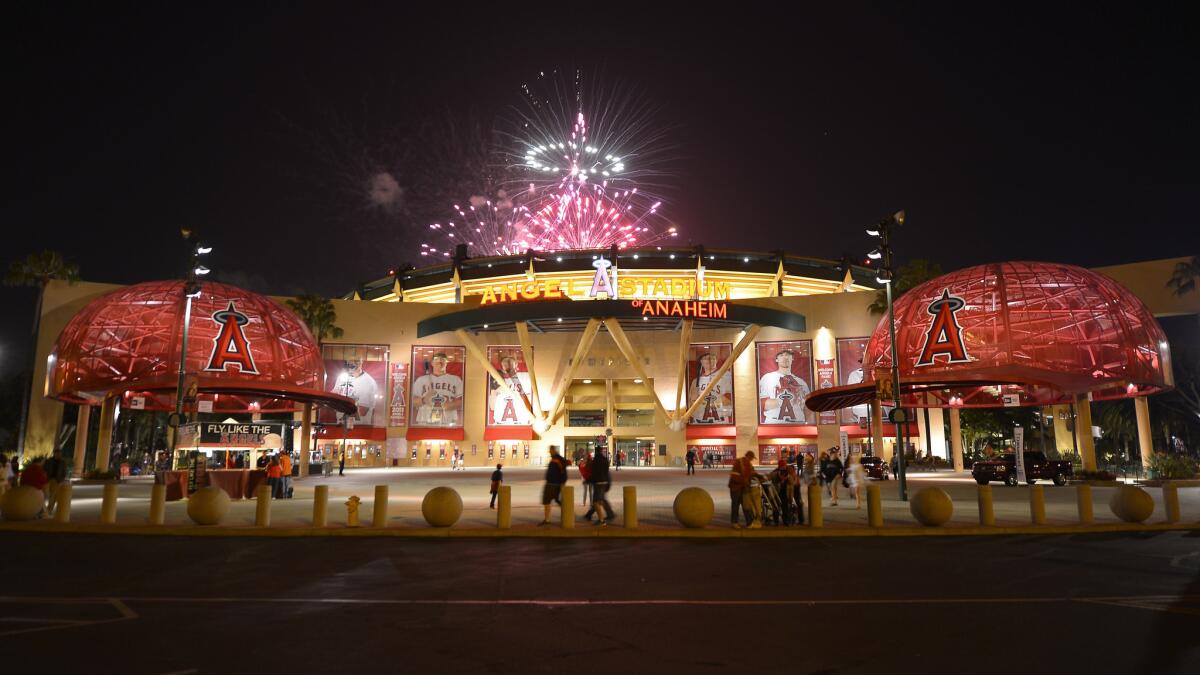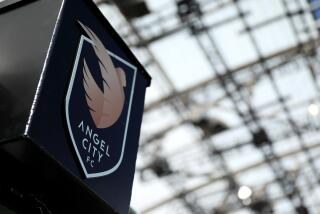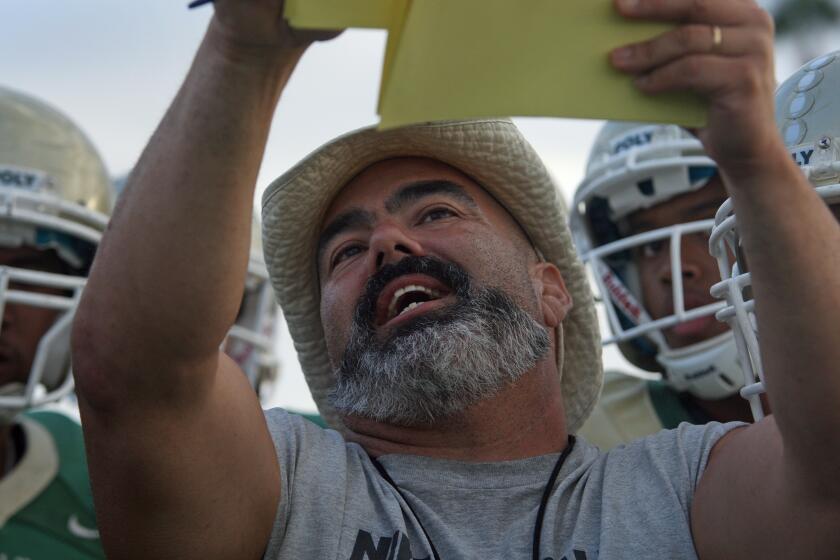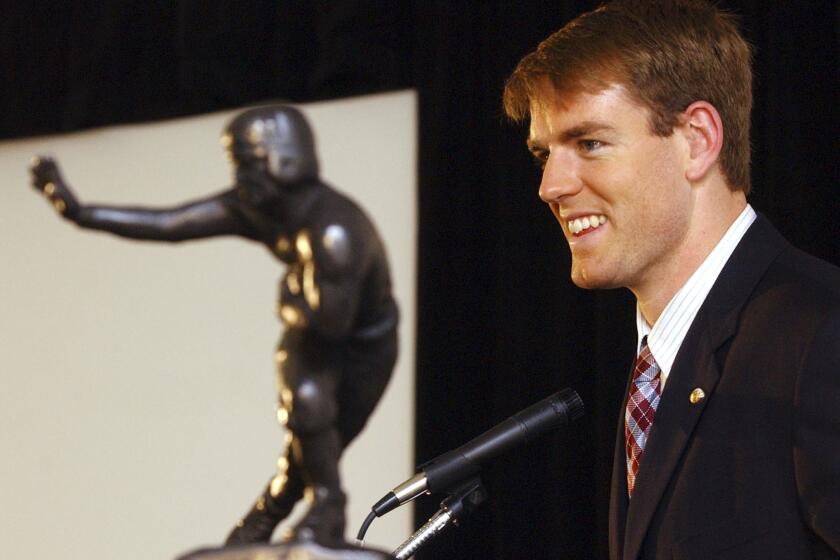Anaheim council debates city’s economic return on Angel Stadium land

As the Anaheim City Council discussed how much the land around Angel Stadium might be worth, the councilmember most strongly advocating a stadium deal with the Angels said Tuesday that Anaheim taxpayers could get a fair return that goes beyond the proposed $1 per year in rent.
“It will be far more than $1 per year,” Councilwoman Kris Murray said.
Timothy Lowe, an appraiser commissioned by the city, told the City Council that the land would be worth $225 million when leased to a developer. Of the 135 acres that surround the ballpark, Lowe said the market could support 86 acres of development, including retail and office space to the north and west of the stadium and 3,000 condominiums and apartments to the south.
The City Council in September agreed to the framework of a deal in which the Angels would be that developer – leasing the land for $1 per year – in exchange for staying in Anaheim and paying the approximately $150 million necessary for long-term stadium infrastructure needs.
Murray said the Angels would refurbish the city-owned stadium at their expense, relieve the city of stadium capital improvement payments and assume the risk of development, at no risk to taxpayers.
“To say the land value of $1 a year is an all-encompassing definition … of the cost the city would extract, I don’t think that is the appropriate analogy,” Murray said.
Anaheim Mayor Tom Tait, one of the five members of the council, said the taxpayer risk comes in not getting “a decent return and good value” for those 135 acres, above and beyond the other benefits. Tait has advocated a deal in which the Angels share profits from development.
“I think there is a win-win here,” Tait said. “I think there is a good deal to be had here.”
Councilwoman Lucille Kring expressed skepticism about the appraised land value. The city has failed to develop the land since the Angels moved into the stadium in 1966, and in recent years has not exercised its authority to sell 45 acres of the site, without the Angels having veto rights. Kring said she believed the last offer came seven years ago.
“Nobody has been knocking at our door for this property,” Kring said.
Lowe estimated a developer would need to spend $225 million to build the parking structures necessary to replace the spaces lost to construction. He estimated the developer could recoup about half of that money through parking revenue without reducing the Angels’ parking income, which he acknowledged would mean fans would pay more for parking.
The Angels, frustrated at what they consider the slow pace of negotiations, have explored the feasibility of building a new ballpark in Tustin and Irvine. Murray said the release of the appraisal should spur city negotiators, but Councilwoman Gail Eastman said its release should spur the Angels in lease talks.
“We are just waiting for the Angels to sit down and have some real serious negotiations,” Eastman said.
However, Tait emphasized the appraiser’s work is not complete. Lowe said he also has been commissioned to estimate how much a new ballpark would cost if the Angels move elsewhere, and how much of that cost the team might be expected to pay. With the loss of redevelopment funding, it is highly unlikely that any city in Southern California would pay to build a ballpark.
Charles Black, the city’s original consultant, said in September that Angels owner Arte Moreno could build a new ballpark for $450 million to $500 million, with no cost for land acquisition. Dan Barrett, the city’s current consultant, told the City Council in March that the cost could run $600 million to $700 million.
At that time, Tait suggested that Moreno might need close to $1 billion to get a new ballpark up and running, including the costs of construction and land acquisition. Barrett called that number too high, but noted that Moreno might take on development partners and that a host city might donate land and cover infrastructure costs, even without paying a penny toward stadium construction.
More to Read
Get our high school sports newsletter
Prep Rally is devoted to the SoCal high school sports experience, bringing you scores, stories and a behind-the-scenes look at what makes prep sports so popular.
You may occasionally receive promotional content from the Los Angeles Times.







